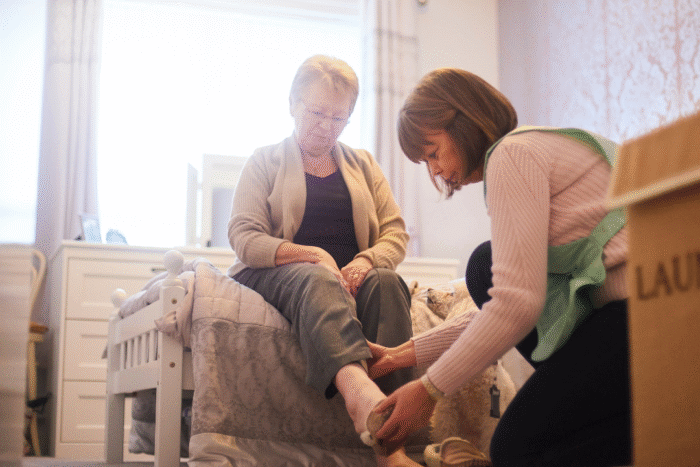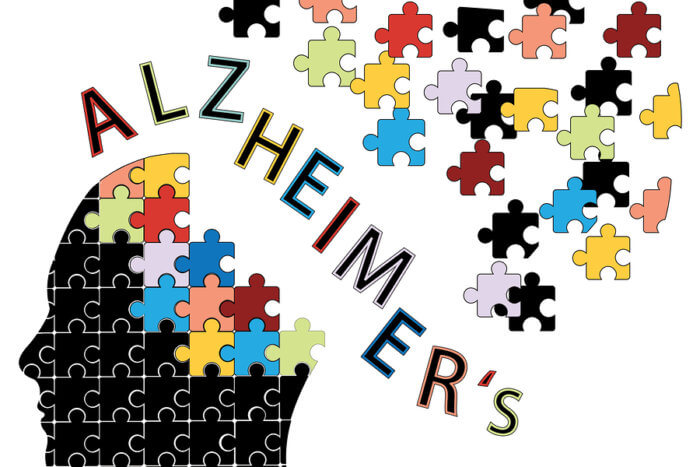How to Manage Challenging Dementia Behaviors: Expert Tips

As a caregiver, you’re not alone in facing the challenges of dementia behaviors. Up to 90% of people with dementia exhibit behaviors that worry or challenge their caregivers, according to research. These behaviors, such as agitation, aggression, sleep problems, and wandering, can be overwhelming, but they can be managed. Understanding the underlying causes of these behaviors and developing effective coping strategies is crucial. This article probes into common dementia behaviors, their causes, and expert tips on handling them. By learning how to manage these challenging behaviors, you can improve the quality of life for your loved one and yourself. For more information on Understanding Challenging Behaviors in Dementia, read on.
The Most Common Dementia Behaviors in the Elderly
As a caregiver, it’s crucial to understand that dementia-related behaviors are a common aspect of the disease. According to research, up to 90% of people with dementia exhibit challenging behaviors, which can be distressing for both the individual and their caregivers.
Identifying Early Signs
Awareness is critical to identifying early signs of dementia-related behaviors. Watch for subtle changes in your loved one’s behavior, such as confusion, agitation, or sleep disturbances. These early signs can help you prepare for the challenges and seek professional guidance when needed.
Common Triggers and Causes
Any change in your loved one’s environment, routine, or physical health can trigger dementia-related behaviors. Common causes include confusion, frustration, pain, discomfort, changes in medication, vision, or hearing loss.
Another crucial factor to consider is the role of sundown syndrome, which can cause increased agitation, confusion, and aggression in the evening hours. By understanding these triggers and causes, you can better prepare to manage your loved one’s behaviors and provide the support they need.
Dementia Behavior: Confusion
One of the most common and challenging dementia behaviors is confusion. It can be heartbreaking to see your loved one struggle to understand their surroundings, remember familiar faces, or complete everyday tasks.
Recognizing Confusion in Daily Life
Daily
Daily, you may notice your loved one repeating the same questions or phrases repeatedly, not recognizing familiar people or places, or becoming disoriented. They may ask repetitive questions like “I want to go home!” or “When are we leaving?” and become agitated when they don’t receive a satisfactory answer. These behaviors can be distressing for both the person with dementia and their caregivers.

Strategies for Reducing Confusion
Strategies for Simplification
Strategies for reducing confusion involve simplifying the environment and interactions. Provide structure and routine, and use tools like alarms, calendars, and to-do lists to help your loved one remember tasks—label drawers and cabinets to help them find things quickly. Use short sentences and ask yes/no questions to minimize frustration.
In addition, normalize their experience by acknowledging their feelings and concerns. For example, you can say, “This seems confusing. I agree. Let’s figure it out together.” By accepting their reality, you can reduce anxiety and agitation. Bear in mind that it’s vital to be patient and understanding, as your loved one’s confusion is a symptom of their dementia.
Dementia Behavior: Aggression
Aggression is one of the most challenging dementia behaviors for caregivers to manage. Verbal threats and physical aggression can be overwhelming and distressing, making it necessary to understand the underlying causes and develop effective strategies to handle these situations.
Understanding Aggressive Behavior
Behavioral changes, such as aggression, can stem from various factors, including confusion, physical pain or unmet needs, frustration, emotional pain, discomfort with specific tasks, reactions to medications, vision or hearing loss, sundown syndrome, and fear. It’s crucial to identify the triggers and address them accordingly.
De-escalation Techniques for Caregivers
Techniques to de-escalate aggressive behavior involve a combination of empathy, reassurance, and redirection. By employing these strategies, caregivers can help reduce the frequency and intensity of aggressive episodes.
Aggressive behavior can be a manifestation of the person’s underlying distress, anxiety, or frustration. As a caregiver, remaining calm, patient, and understanding is necessary. Start by reassuring your loved one, reorienting them to their environment, redirecting their attention to a familiar object or activity, and reminiscing about happy memories. Additionally, listen to their concerns, avoid arguing, and take the blame to defuse the situation. By adopting these de-escalation techniques, you can create a safer and more supportive environment for your loved one.
Remember, as a caregiver, you are not alone in managing dementia behaviors. Central Scottsdale Assisted Living by MD Senior Living supports you with expert guidance and resources. Contact us at 619-831-1112 to learn more about our care assessment and memory care options.
Dementia Behavior: Sleep Problems
Your loved one’s sleep patterns may change as dementia progresses, leading to sleep disturbances that can be challenging for both them and you as a caregiver. According to Dementia: Coping with ordinary, sometimes distressing behaviors, sleep problems are common in people with dementia, affecting up to 70% of individuals.
Sleep disturbances can manifest in different ways, such as insomnia, daytime sleepiness, or nighttime wandering. These changes can be caused by various factors, including medication side effects, discomfort, pain, and changes in the brain associated with dementia.

Impact of Sleep Disturbances on Caregivers
Disturbances in sleep patterns can significantly impact caregivers, leading to increased stress, fatigue, and anxiety. As a caregiver, you may sacrifice your sleep and well-being to care for your loved one, leading to burnout and decreased quality of life.
Establishing a Consistent Sleep Routine
Any changes to your loved one’s sleep routine can be challenging, but establishing a consistent sleep schedule can help regulate their sleep patterns and improve the quality of their sleep.
Establishing a consistent sleep routine involves
- creating a relaxing bedtime routine,
- ensuring a comfortable sleep environment and
- encouraging daily physical activity.
This can include reading, taking a warm bath, or practicing relaxation techniques like deep breathing or meditation. Limiting caffeine and electronics before bedtime can also help promote better sleep.
By implementing these strategies, you can help your loved one establish a consistent sleep routine, improving the quality of their sleep and reducing the impact of sleep disturbances on both of them and you as a caregiver.
Dementia Behavior: Wandering
Keep in mind that wandering is an expected behavior in people with dementia, and it can be challenging to manage. According to the Alzheimer’s Association, up to 60% of people with dementia will wander at some point. Wandering can be dangerous, leading to getting lost, injured, or even exploited. You’re not alone if you struggle to manage your loved one’s wandering behavior. 7 Steps to Manage Alzheimer’s Behaviors (Without Drugs) can provide valuable guidance and support.
Preventing Wandering at Home
To prevent wandering at home, remove any hazards or obstacles that could trigger your loved one’s desire to leave. This includes removing tripping hazards, securing doors and windows, and closely monitoring your loved one’s whereabouts.
Creating a Safe Environment
Identify potential triggers for wandering to create a safe environment for your loved one. Is it boredom, anxiety, or a desire for freedom? Once you understand the underlying reasons, you can take steps to address them. For example, you can provide engaging activities, offer reassurance and comfort, or create a sense of freedom within a safe and controlled environment. Creating a safe environment also involves setting up a secure, comfortable space that encourages your loved one to stay. This can include creating a cozy living area, providing familiar objects and comforts, and ensuring your loved one has access to basic needs such as food, water, and restrooms. Creating a safe and welcoming environment can reduce the likelihood of wandering and promote a sense of calm and security.

Talk with a Senior Living Advisor
Unlike navigating the complexities of dementia care alone, talking with a senior living advisor can provide expert guidance and support. These professionals have extensive knowledge of dementia care and can help you develop a personalized plan to manage challenging behaviors.
Benefits of Professional Guidance
The benefits of seeking professional guidance from a senior living advisor cannot be overstated. They can help you identify the underlying causes of your loved one’s behaviors, provide coping strategies, and connect you with local resources and support services.
Finding the Right Support System
Advisors specializing in dementia care can help you find the right support system for your loved one. They can assess your loved one’s needs and preferences and match them with a suitable care community or in-home care provider. Systematically, a senior living advisor will evaluate your loved one’s requirements, considering their medical history, lifestyle, and personal preferences. They will present various options, including memory care communities, assisted living facilities, and in-home care services. By working with a senior living advisor, you can rest assured that your loved one will receive the care and support they need to thrive.

Remember: Your Needs as a Caregiver Matter Too
To effectively manage challenging dementia behaviors, it’s essential to prioritize your well-being as a caregiver. Caring for a loved one with dementia can be emotionally, physically, and mentally draining. As Dr. Hashmi emphasizes, “You are not alone” in this journey. However, it’s crucial to recognize that your needs matter, too.
As a caregiver, you may feel overwhelmed by the responsibilities of caring for your loved one, managing their behaviors, and navigating the complexities of dementia. It’s common to put your own needs on the back burner, but this can lead to burnout, anxiety, and depression. Research suggests that caregivers who don’t prioritize their well-being are more likely to experience adverse outcomes, including decreased quality of life and increased risk of chronic diseases.
At Central Scottsdale Assisted Living by MD Senior Living, we understand the importance of supporting caregivers like you. Our team is dedicated to providing resources, guidance, and respite care options to help you cope with the challenges of dementia caregiving. By prioritizing your own needs, you’ll be better equipped to manage your loved one’s behaviors and improve your overall quality of life.
So, take a step back, and remember that your needs matter, too. Contact us at 619-831-1112 to explore our care assessment guide, support groups, and memory care options designed to support you and your loved one. By acknowledging your needs and seeking help when needed, you’ll be better equipped to navigate the complexities of dementia caregiving and find a sense of balance and well-being.





Leave a Comment